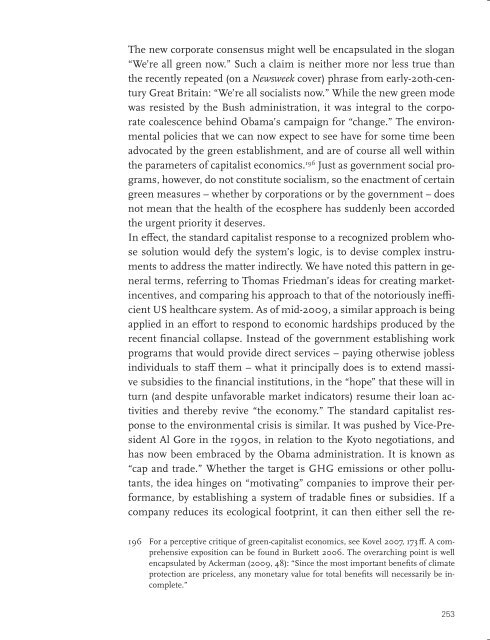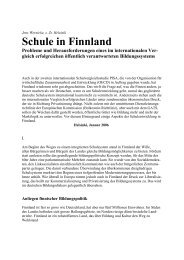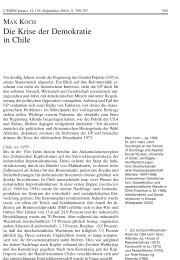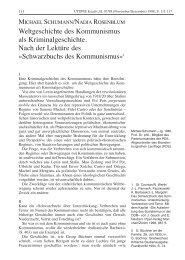Grünen Kapitalismus - Rosa-Luxemburg-Stiftung
Grünen Kapitalismus - Rosa-Luxemburg-Stiftung
Grünen Kapitalismus - Rosa-Luxemburg-Stiftung
Erfolgreiche ePaper selbst erstellen
Machen Sie aus Ihren PDF Publikationen ein blätterbares Flipbook mit unserer einzigartigen Google optimierten e-Paper Software.
The new corporate consensus might well be encapsulated in the slogan<br />
“We’re all green now.” Such a claim is neither more nor less true than<br />
the recently repeated (on a Newsweek cover) phrase from early-20th-century<br />
Great Britain: “We’re all socialists now.” While the new green mode<br />
was resisted by the Bush administration, it was integral to the corporate<br />
coalescence behind Obama’s campaign for “change.” The environmental<br />
policies that we can now expect to see have for some time been<br />
advocated by the green establishment, and are of course all well within<br />
the parameters of capitalist economics. 196 Just as government social programs,<br />
however, do not constitute socialism, so the enactment of certain<br />
green measures – whether by corporations or by the government – does<br />
not mean that the health of the ecosphere has suddenly been accorded<br />
the urgent priority it deserves.<br />
In effect, the standard capitalist response to a recognized problem whose<br />
solution would defy the system’s logic, is to devise complex instruments<br />
to address the matter indirectly. We have noted this pattern in general<br />
terms, referring to Thomas Friedman’s ideas for creating marketincentives,<br />
and comparing his approach to that of the notoriously inefficient<br />
US healthcare system. As of mid-2009, a similar approach is being<br />
applied in an effort to respond to economic hardships produced by the<br />
recent financial collapse. Instead of the government establishing work<br />
programs that would provide direct services – paying otherwise jobless<br />
individuals to staff them – what it principally does is to extend massive<br />
subsidies to the financial institutions, in the “hope” that these will in<br />
turn (and despite unfavorable market indicators) resume their loan activities<br />
and thereby revive “the economy.” The standard capitalist response<br />
to the environmental crisis is similar. It was pushed by Vice-President<br />
Al Gore in the 1990s, in relation to the Kyoto negotiations, and<br />
has now been embraced by the Obama administration. It is known as<br />
“cap and trade.” Whether the target is GHG emissions or other pollutants,<br />
the idea hinges on “motivating” companies to improve their performance,<br />
by establishing a system of tradable fines or subsidies. If a<br />
company reduces its ecological footprint, it can then either sell the re-<br />
196 For a perceptive critique of green-capitalist economics, see Kovel 2007, 173 ff. A comprehensive<br />
exposition can be found in Burkett 2006. The overarching point is well<br />
encapsulated by Ackerman (2009, 48): “Since the most important benefits of climate<br />
protection are priceless, any monetary value for total benefits will necessarily be incomplete.”<br />
253













